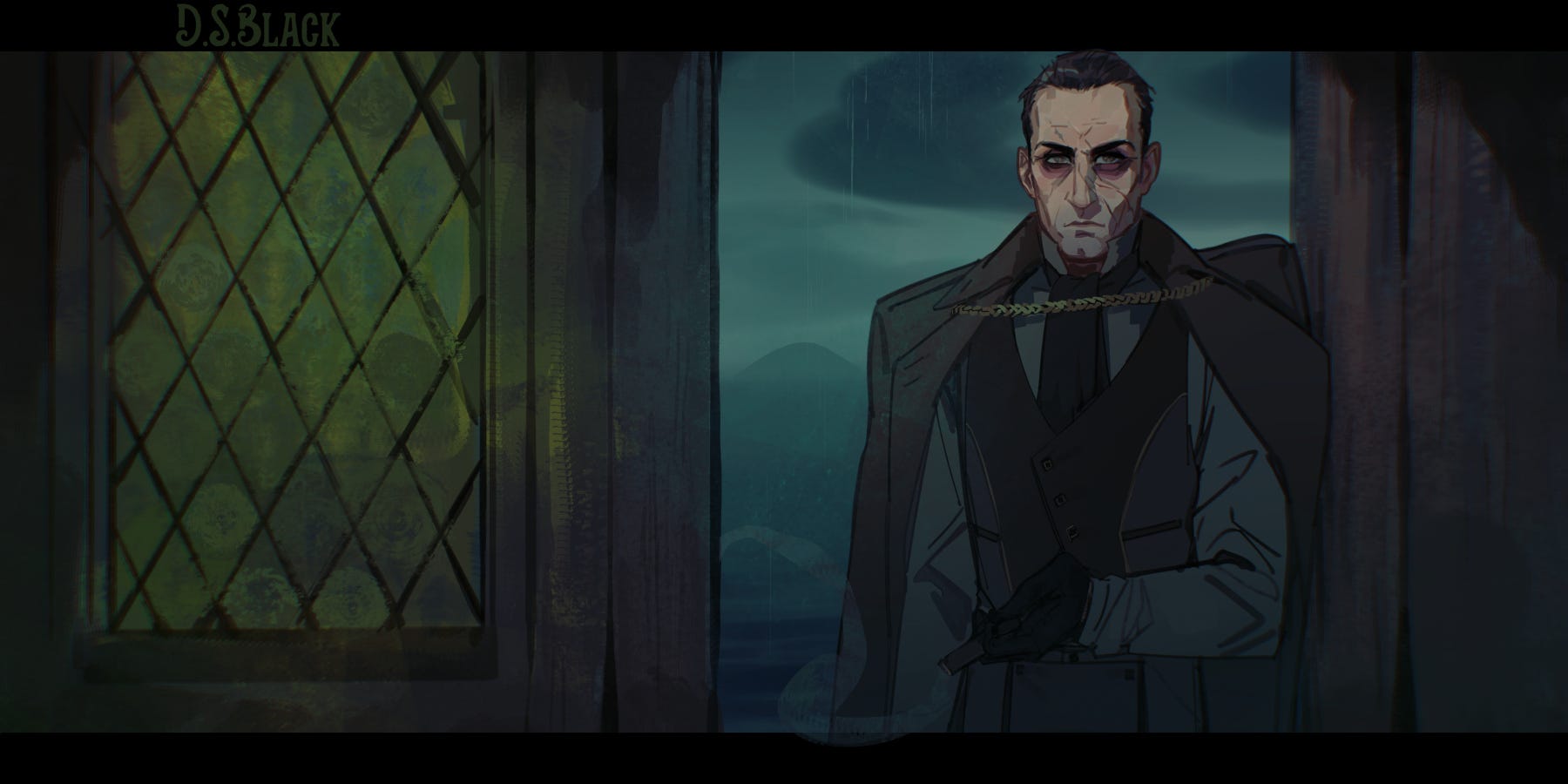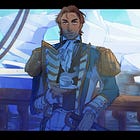Daud van Richter doesn’t trust anyone. It’s not philosophy—it’s survival.
He’s a deniable asset for the Summit & Spire Mercantile: half-noble, all bastard, and expensive precisely because he never fails. Except for that one time. He approaches every mission as a tactical problem, every person as a collection of exploitable variables. Trust, in his calculation, is the fatal flaw that gets competent people killed.
Then he meets Captain Somerset—and discovers that his perfect, cynical equation has a variable he can’t solve.
Dossier: Daud van Richter
Designation: Clandestine Agent, Summit & Spire Mercantile
Known Alias: The Laageter
Appearance & Demeanor: Daud van Richter is a man who has weaponized stillness. His features are a paradox of his lineage: the high cheekbones and aquiline nose of his noble Befruoren father, starkly contrasted by the pale, almost sallow olive skin of his Netzekali mother's heritage. His dark hair is kept ruthlessly short, with the first, stark threads of silver at his temples serving as the most formal marker of an age that the haunted look in his eyes has long since surpassed.
He dresses in dark, practical, and exquisitely tailored clothing of a Befruoren cut, free of all frivolous ornamentation. His movements are economical and precise, the grace of a hunter who has learned that wasted energy is a fatal inefficiency. He does not perform charm; he performs analysis, a quiet, unnerving scrutiny that can dismantle a person more effectively than any physical threat. His defining feature is his gaze—the color of a winter sea, it is the gaze of a man who does not just see you, but is actively calculating the physics of your failure.
His voice is a low, dry rasp, a tool he uses with surgical precision, each word a carefully weighed and measured thing. His entire philosophy is one of cynical pragmatism, a worldview forged in the cold, brutal logic of his own scars.
Here’s Daud in his natural habitat—calculating, patient, and absolutely certain he’s smarter than you:
"I do not waste my time with the poetry of journalists, Captain," he said, his voice a low, dry rasp. "I prefer the hard, simple prose of a ship's manifest. For example, a Befruoren merchant cog, the Stadholder, which was logged as carrying a rather... significant cargo of raw Aether-lode. A cargo that is now, according to your own official report, lost to the deep."
He paused, letting the silence stretch, a hunter allowing his prey to feel the cold certainty of the trap. Then, he offered the first, and only, concession of the night.
"My name is Daud," he said, his voice a low, intimate murmur that was a threat and a promise all at once. "And the cargo you have so tragically 'lost'... is mine. I am here to collect it."
Daud was taught early that he’s a tool, not a person. Useful, expensive, but never loved.
His response? Become the best fucking tool in the box. Make competence his identity. Trust became the enemy—the anchor that drowns fools, as he’d say. The Grinders Incident proved him right: a mission failure, a betrayal, and two missing teeth he refuses to fix. They’re his reminder. His altar to never making that mistake again.
His pride is not in his name or his blood, but in his absolute competence. To be outmaneuvered or underestimated is the deepest possible insult. He approaches every situation as a tactical problem to be solved, every person a collection of variables to be analyzed and, if necessary, exploited.
His greatest vulnerability? He recognizes Somerset as an equal.
Not the charm—Daud sees through performative bullshit like X-ray vision. But he sees another outcast who had to forge his own authority against impossible odds. Another man the system uses but never truly accepts. That recognition terrifies him because it’s a variable his cynical calculus can’t account for: the possibility that someone might be worth trusting.
Next Entry from the Logbook? The other (not literal) bastard himself:
Fair winds,
—D.S. Black




